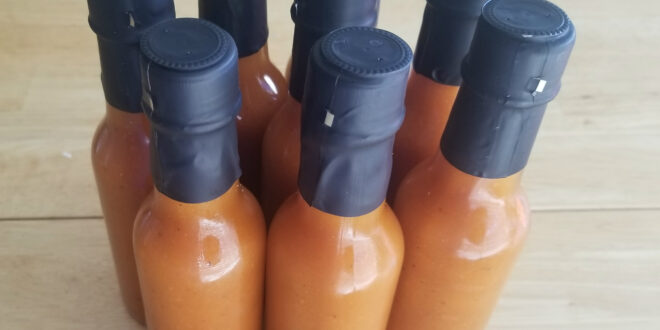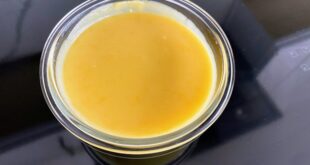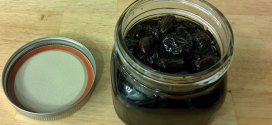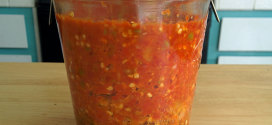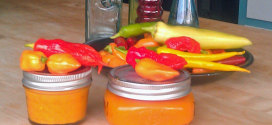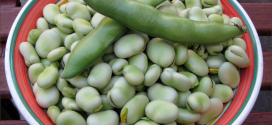Introducing the Creaper! My hot sauce made with home-grown Carolina Reaper chile peppers, carrots, ginger, and some other stuff.
I will say it again later but I am saying it here first: Use a food mill to filter out the pulp. It quickly and efficiently squeezes the thick sauce to extract the juice and leave behind the chile pepper seeds and the fibrous pulp of the carrots and ginger.
Ingredients
- 2 large carrots peeled and diced
- 8 ounces fresh ginger (about 3 [5-inch] pieces peeled, sliced against the grain)
- 1 small onion chopped
- 6 garlic cloves chopped
- Carolina Reaper pepper(s) coarsely chopped. I used 6.
- 2 Roma tomatoes chopped (or 1 15-ounce canned tomato, whole or crushed)
- 1/2 cup honey or sugar
- 1 teaspoon ground mustard
- 1 teaspoon cumin
- Salt and pepper to taste
- 1/2 cup Lemon or lime juice
- apple cider vinegar
Directions
- Chop the carrots and ginger small so they cook faster. Wear gloves and use caution when chopping the peppers.
- Heat a saucepan to medium heat. Add carrots, onion and peppers and cook about 7 minutes to soften.
- Add garlic and cook another minute.
- Add tomatoes and cook a couple minutes more, breaking apart the tomatoes with a wooden spoon, until it breaks down.
- Add remaining ingredients and bring to a quick boil. Reduce heat and simmer about 20 minutes.
- Cool then transfer to a food processor or blender. Process until smooth.
- Strain the pulp from the sauce and discard it. Use a food mill if you have one. Otherwise use a fine mesh strainer, a wooden spatula, and your arm muscles.
- Adjust for ph by adding acidity from lemons, limes, or vinegar. See Food Safety Tips below.
- Transfer to sterilized bottles for keeping. Enjoy!
Food Safety
Here is the safest tip: Store the hot sauce in the refrigerator.
Hot sauces that are highly acidic have a longer shelf-life. Hot sauces stored in the refrigerator have a longer shelf-life than those stored on the pantry shelf.
Fermented hot sauces develop acidity during the fermentation process. Non-fermented hot sauces (like this recipe) add acid in the form of vinegar and/or citrus juice.
Most literature recommends a ph value lower than 4.0 for refrigerated hot sauce and a lower ph value of 3.4 for unrefrigerated hot sauce.
I recommend you test the acidity using a ph meter. An inexpensive model costs about $15.
